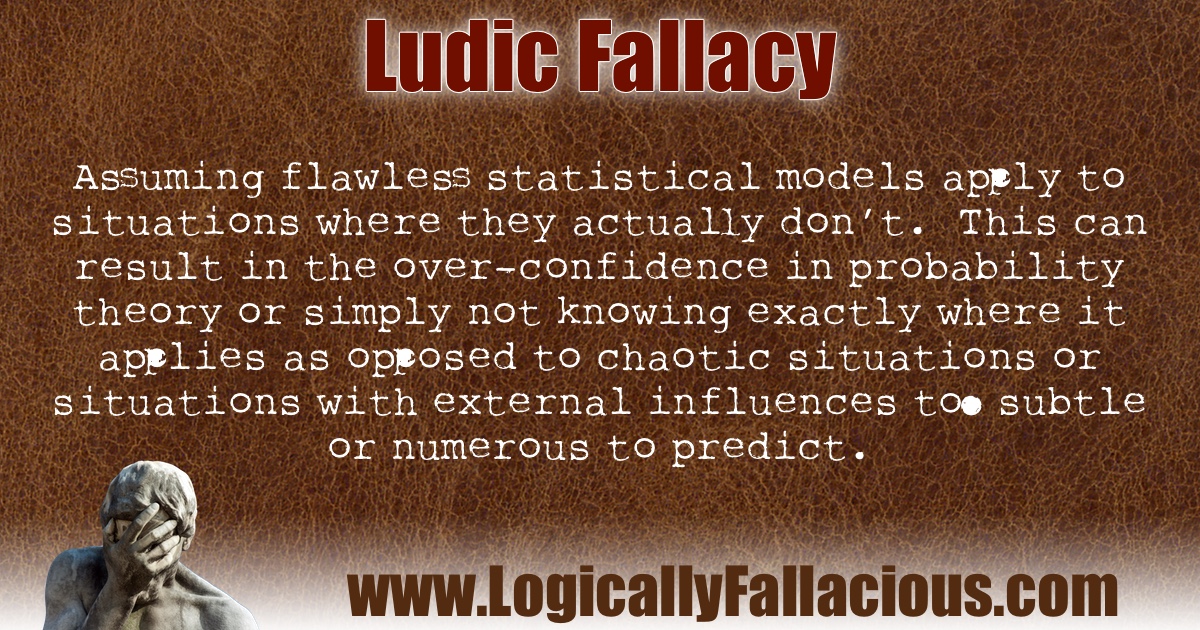ludus
Description: Assuming flawless statistical models apply to situations where they actually don’t. This can result in the over-confidence in probability theory or simply not knowing exactly where it applies as opposed to chaotic situations or situations with external influences too subtle or numerous to predict.
Logical Form:
Claim is made.
Statistics are referenced, reason is ignored.
Therefore, the statistical answer is used to support or reject the claim.
Example #1: The best example of this fallacy is presented by the person who coined this term, Nassim Nicholas Taleb in his 2007 book, The Black Swan. There are two people:
Dr. John, who is regarded as a man of science and logical thinking.
Fat Tony, who is regarded as a man who lives by his wits.
A third party asks them, "assume a fair coin is flipped 99 times, and each time it comes up heads. What are the odds that the 100th flip would also come up heads?" Dr. John says that the odds are not affected by the previous outcomes so the odds must still be 50/50. Fat Tony says that the odds of the coin coming up heads 99 times in a row are so low (less than 1 in 6.33 × 1029) that the initial assumption that the coin had a 50/50 chance of coming up heads is most likely incorrect.
Explanation: You can imagine yourself watching a coin flip. Knowing all about the gambler’s fallacy, you would hold out much longer than someone like Fat Tony when you get to the point where you say, “All right, something’s going on here with the coin”. At what point does it become fallacious reasoning to continue to insist that you are just witnessing the “inevitable result of probability”? There is no definite answer -- your decision will need to be argued and supported by solid reasons.
Example #2:
Lolita: Since about half the people in the world are female, the chances of the next person to walk out that door being female is about 50/50.
Celina: Do you realize that is the door to Dr. Vulvastein, the gynecologist?
Explanation: Lolita is focusing on pure statistics while ignoring actual reason.
Exception: See the explanation for example #1.
Fun Fact: Chaos theory plays a huge role in our universe, and it is way beyond the scope of this book. As for this fallacy, many things that appear to be random are actually chaotic systems, or unpredictable, deterministic systems. Attempting to apply the rules of random probability in those cases will result in all kinds of errors.
